1. Skipping Pre-Trip Inspections
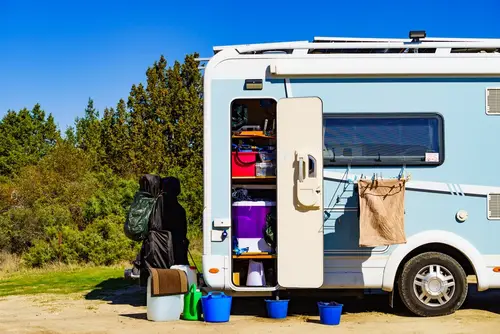
It might feel like a chore to check your RV before every trip, but ignoring this step almost guarantees stress later. Tires lose pressure, hoses crack, and batteries drain when they sit unused. If you skip the inspection, you could be facing a flat tire or dead battery miles from help. A 15-minute walk-around can save you from a day-long headache.
Many RVers admit they only do a deep check once in a while, but consistency is key. Looking at fluid levels, tire tread, and lights before you roll is just as important as checking your mirrors. Think of it like brushing your teeth—small effort now, big problems avoided later. Making it a ritual keeps surprises from derailing your trip.
2. Overpacking the RV
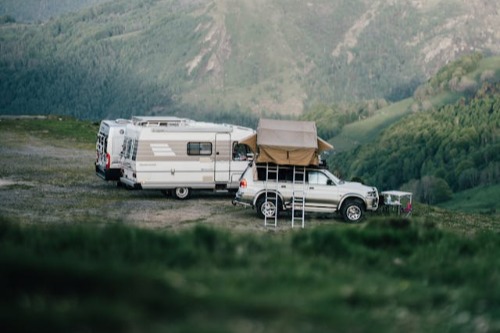
Stuffing your RV with everything you “might” need can create more stress than comfort. Every item adds weight, and too much weight makes handling harder and braking less effective. It also strains the engine and suspension, which shortens the lifespan of your rig. Plus, it’s frustrating to dig through piles of stuff just to find a frying pan.
Overpacking can also mean going over the RV’s weight rating, which is a serious safety issue. It can cause blowouts, especially if your tires aren’t rated for the extra load. Traveling lighter makes the whole experience smoother and less cluttered. You’ll thank yourself when you can actually move around inside your RV.
3. Forgetting to Balance Weight Properly

Even if you pack lightly, placing all the weight in the wrong spots can cause problems. Too much weight in the back can make the RV sway, while too much up front can overload the hitch. This uneven distribution affects steering and makes it harder to control in wind or when trucks pass. In short, balance matters as much as quantity.
An RV should feel stable on the road, not like it’s fighting you at every turn. Using a simple bathroom scale for heavy items and spreading them out evenly can make a big difference. Many seasoned RVers mark storage spots specifically for heavier gear. Think of your RV as a see-saw—it only works well when balanced.
4. Not Securing Loose Items Inside

Driving an RV isn’t like driving a car—everything inside moves when you hit the brakes or turn sharply. A coffee maker or laptop can become a projectile if left unsecured. This not only risks damaging your stuff but also creates safety hazards for anyone inside. It’s unnerving to hear crashes behind you on the road.
A quick check before you start driving can prevent most of these problems. Store heavy items low, use non-slip mats, and secure cabinets with latches. Many RVers even use bungee cords for extra peace of mind. A calm, quiet ride is always better than listening to your kitchen rattle apart.
5. Ignoring Tire Maintenance
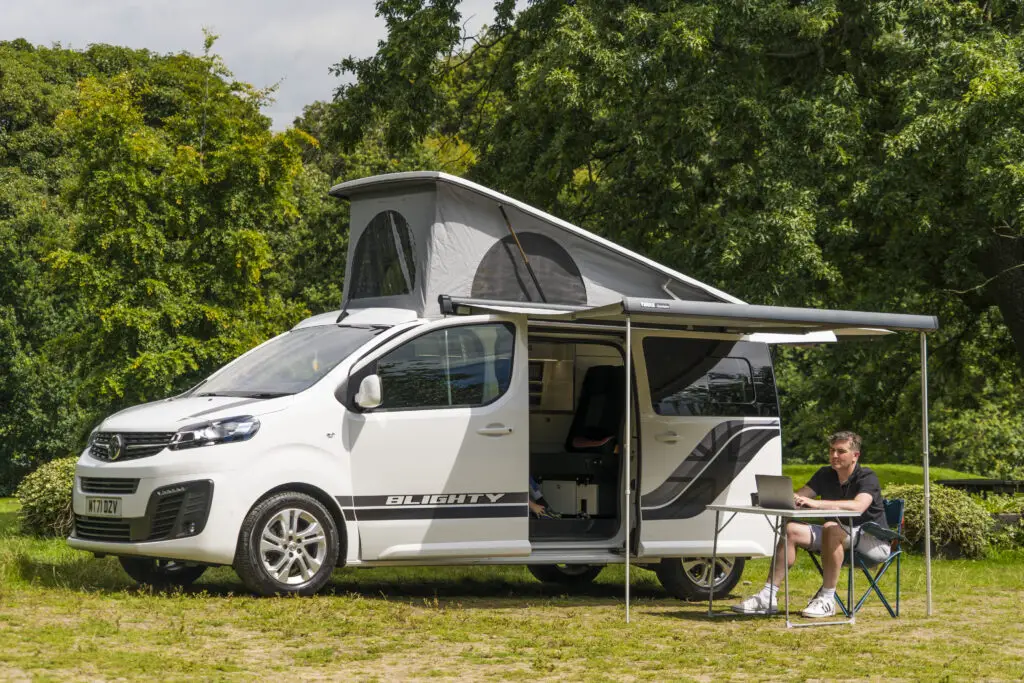
Tires are one of the most common points of failure on an RV trip. Low pressure, uneven wear, or old rubber can easily lead to blowouts. Since RV tires carry heavy loads, they’re especially vulnerable if neglected. A single blown tire can damage your RV’s body and throw your whole trip off schedule.
Checking tire pressure and tread before each drive is simple but often overlooked. Investing in a tire pressure monitoring system gives you real-time updates while driving. Replacing tires based on age, not just tread depth, is another smart move. RV tires age out around 6–7 years regardless of mileage.
6. Failing to Plan Fuel Stops
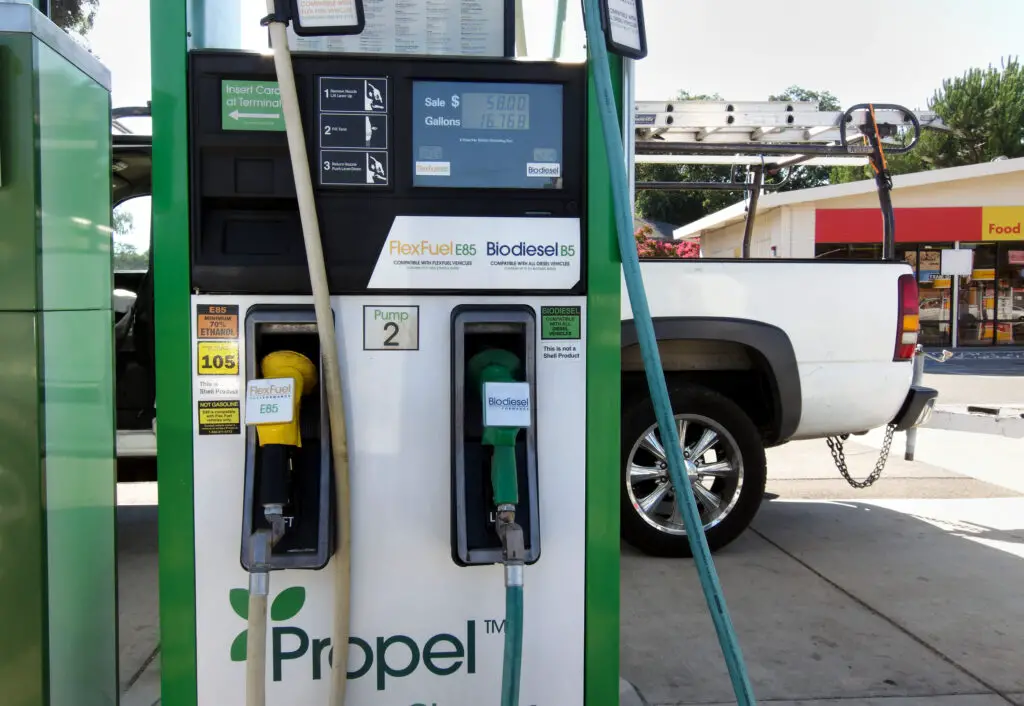
Unlike cars, RVs can’t just pull into any old gas station. Narrow entrances, low canopies, and tight turns can spell disaster if you don’t plan ahead. Running low on fuel only adds to the stress, especially if you’re in a remote area. Being proactive keeps your trip moving smoothly.
Apps and maps designed for RVs are lifesavers here. They point out truck stops or stations with RV-friendly layouts. Many RVers also track their fuel efficiency to know how far they can realistically go between stops. Planning fuel breaks makes you feel in control instead of scrambling last minute.
7. Overestimating Driving Time
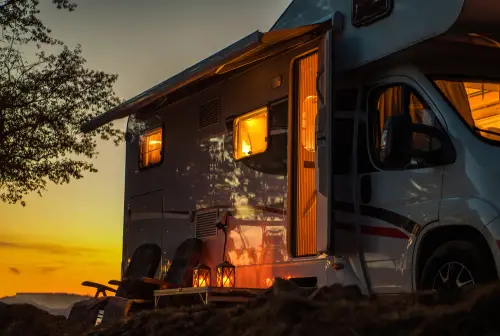
It’s easy to look at a map and assume you’ll cover ground quickly, but RV travel is slower. You’ll need extra time for fuel stops, bathroom breaks, and dealing with traffic. Pushing yourself to drive long hours just to “make good time” usually backfires. Fatigue sets in, mistakes happen, and tensions rise.
Experienced RVers recommend planning for 250–300 miles a day, max. That gives you room for delays without feeling rushed. Remember, the whole point of RV travel is to enjoy the journey. Slowing down makes the road feel less like a race and more like an adventure.
8. Forgetting to Check Campsite Access
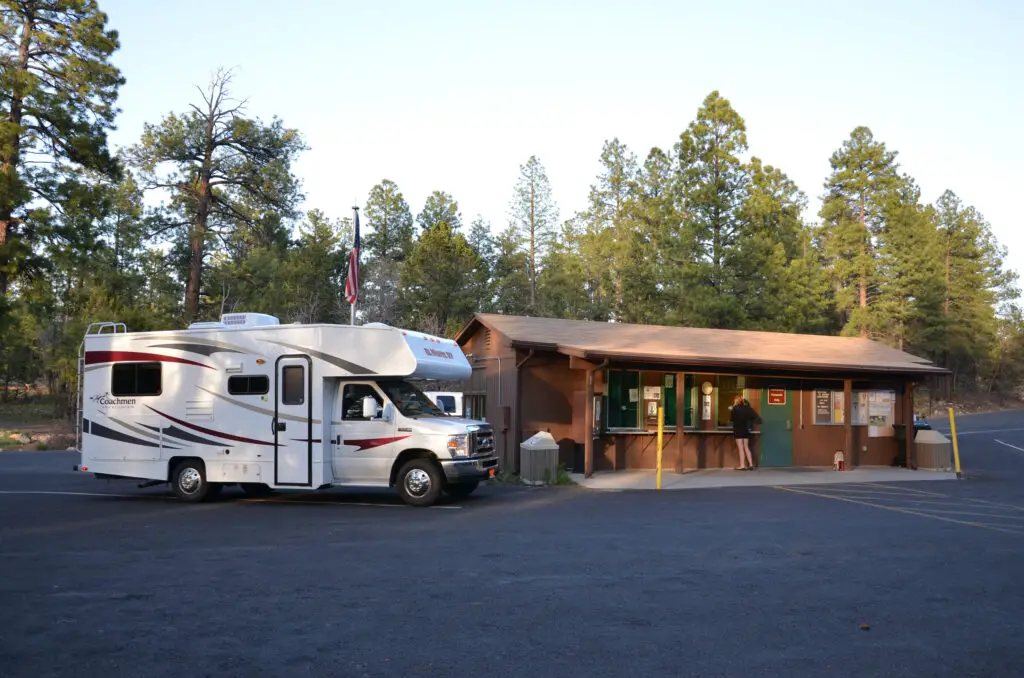
Not all campsites are designed for RVs, especially larger rigs. Narrow access roads, low-hanging branches, or tight spots can make parking impossible. Arriving late at night only compounds the frustration. You might end up stuck or forced to find another place at the last minute.
Calling ahead or checking online reviews helps prevent these situations. Many campgrounds list maximum RV sizes, and apps often include photos from other travelers. It’s worth double-checking before you drive miles out of your way. A little research ensures you’ll actually fit when you get there.
9. Not Emptying Tanks Regularly

Holding tanks can fill up faster than you expect, especially with more people onboard. Ignoring this leads to backups, odors, and a very unpleasant experience. It’s one of those things you can’t ignore once it becomes a problem. Staying on top of it keeps the trip far more comfortable.
Most RVers develop a routine: empty tanks when they’re about two-thirds full. This helps avoid clogs while giving enough volume for effective flushing. Learning to manage your water use also stretches out the time between dumps. A bit of planning prevents a lot of stress in this department.
10. Skipping Route Research
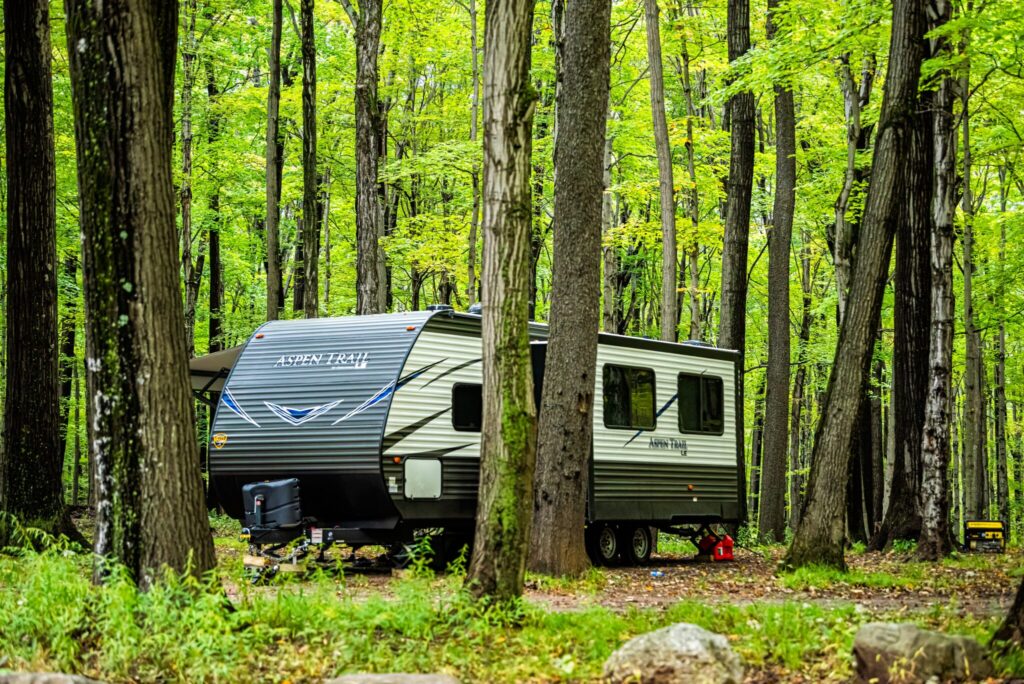
Not every road is RV-friendly. Low bridges, steep grades, and weight restrictions can turn a drive into a nightmare if you’re unprepared. GPS apps meant for cars don’t always warn you about these hazards. A wrong turn could leave you stuck or facing a costly detour.
Specialized RV GPS units and mapping apps help avoid these pitfalls. They account for your rig’s height, weight, and length. Double-checking routes before you hit the road is always worth it. It keeps the drive safer and your nerves calmer.
11. Leaving Without a Weather Check
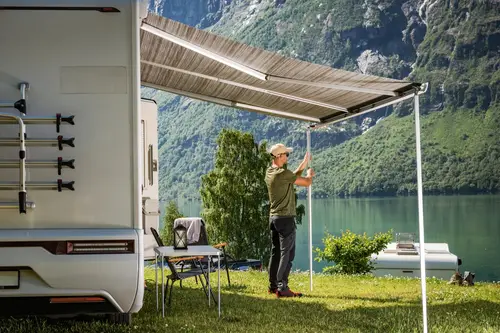
Weather impacts RV travel more than many realize. Strong winds can push a high-profile RV around, and heavy rain makes braking harder. Freezing temps can damage plumbing if you’re caught unprepared. Not knowing what’s ahead is like driving blind.
A quick check of the forecast each morning helps you plan accordingly. Adjusting your schedule by even a few hours can mean avoiding storms or icy roads. Many RVers use weather apps with alerts to stay updated on the go. Staying informed keeps you safer and less stressed.
12. Not Having a Backup Plan
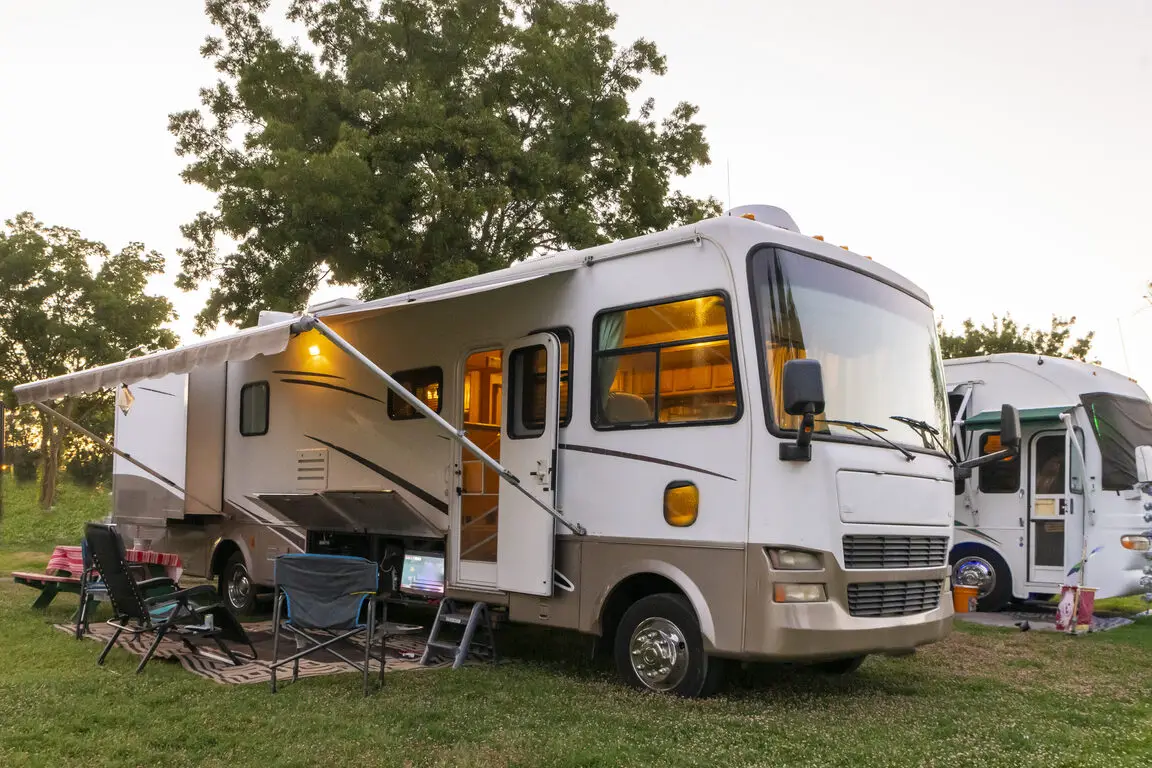
Sometimes campgrounds fill up, roads close, or weather ruins your plans. If you don’t have a backup, you’re left scrambling. That’s stressful when you’re tired and just want a place to rest. Having alternatives in mind makes setbacks easier to handle.
Many RVers keep a list of nearby campgrounds or boondocking spots as a backup. Apps can help identify these options on the fly. Flexibility is part of the RV lifestyle, but preparation makes it smoother. Think of a backup plan as insurance for your peace of mind.
13. Driving Without Communication

When traveling in a caravan or with family in another vehicle, relying only on cell service can be risky. Coverage drops in rural areas, and suddenly you’re out of touch. Miscommunication about stops or turns quickly leads to frustration. Radios or walkie-talkies can be a lifesaver here.
Even within one RV, clear communication is important. The driver needs updates about navigation, upcoming stops, or issues inside the RV. Stress builds fast if everyone’s frustrated and no one’s on the same page. Simple communication tools make the trip flow better.
14. Ignoring Maintenance Schedules
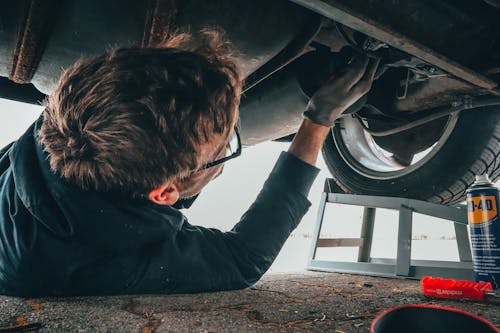
RVs need more care than most cars because they’re essentially a home and a vehicle combined. Neglecting oil changes, roof inspections, or generator servicing leads to breakdowns at the worst times. Small problems quickly snowball into costly repairs. Skipping scheduled maintenance is asking for stress.
Following the manufacturer’s recommended schedule helps catch issues early. Many RVers keep a logbook to track when each system was last serviced. This habit builds peace of mind that your rig is road-ready. A well-maintained RV means more fun and fewer worries.
This post 14 RV Habits That Guarantee Stress on the Road was first published on Greenhouse Black.
